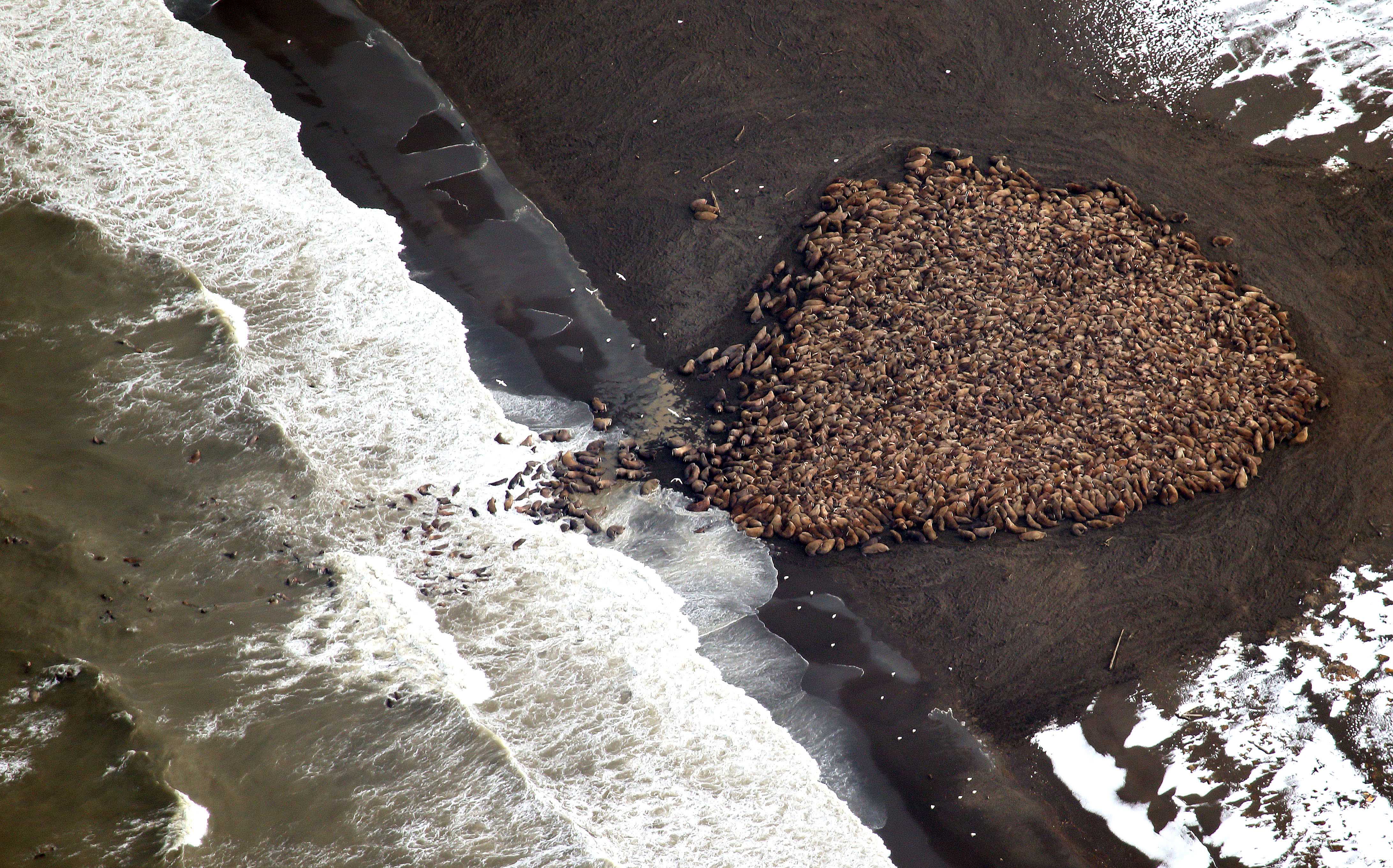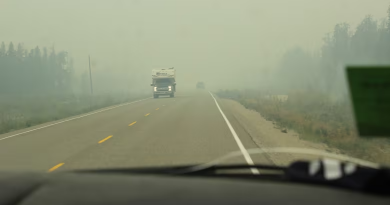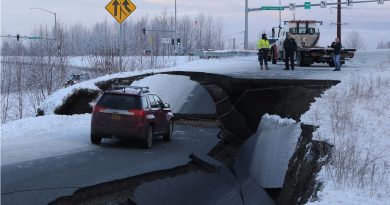Walrus congregation in Northwest Alaska apparently short-lived this year

A congregation of walruses spotted on a Northwest Alaska beach Friday numbered about 6,000, but the animals had departed within days and were probably heading out on their fall migration, the U.S. Fish and Wildlife Service said on Tuesday.
The walruses are likely swimming south to coastal haulout areas in Chukotka, Russia, Joel Garlich-Miller, a Fish and Wildlife walrus biologist said in a statement issued by the agency.
The walruses were gone from the barrier island on the eastern Chukchi Sea coast as of Monday, the Fish and Wildlife Service said.
The beach site, near the Inupiat village of Point Lay in northwestern Alaska, has often been crowded with walruses in late summer and early fall in recent years as Arctic sea ice has diminished. It is part of a wider pattern of Pacific walrus behavior observed as the Arctic climate warms.
But this year’s congregation was smaller than the tens of thousands of animals hauled out in past years. It was also much later; the crowds of up to 40,000 walruses previously had started forming in mid- to late August before the autumn migration south, the Fish and Wildlife Service said.
Retreating sea ice
The behavior has been a nearly annual ritual since 2007, when the summer ice retreated to what was, at the time, a record-low minimum. This year’s ice extent was also low, tying 2007 for what’s now the second-lowest mark in the satellite record, but some patches of sea ice persisted in the eastern Chukchi Sea, helping the animals avoid the need to come ashore.
Walruses use floating ice to rest, generally away from predators, in between dives to forage for food on the sea floor. The Hanna Shoal area in the eastern Chukchi — a 100-mile-long bump on the sea floor that creates an area of shallow waters — is a preferred foraging site, with large amounts of the clams, snails and other fish that walruses eat.
Biologists believe that the lingering ice allowed walruses to stay in the Hanna Shoal area, said Fish and Wildlife Service spokeswoman Andrea Medeiros.
“It just happened to be that there was enough ice for them to hang out,” she said.
Preventing stampedes
The walruses that crowd onto shore near Point Lay are mostly females and their young calves. In previous years, those animals have been at risk from stampedes that can kill some of them, especially the small calves. For that reason, the Native Village of Point Lay, the Fish and Wildlife Service and the Federal Aviation Administration have taken steps to prevent disturbances that can frighten the animals and spark deadly stampedes.
There was no evidence of any human-caused disturbances to the walruses this year, Medeiros said. There was a report of a polar bear in the area, and there were some dead walruses found, so it is possible that the polar bear triggered a stampede or an exodus from the area.
Though the animals departed, it is possible that some will return to the beach in coming days, Medeiros said.
“Tomorrow there might be some walrus that come back on shore. You never know. They ebb and flow,” she said.
Related stories from around the North:
Canada: Canada calls for Arctic wildlife enforcement network, Radio Canada International
Finland: Fewer reindeer lost to predators in Finland, Yle News
Iceland: Feature Interview – Hunting culture under stress in Arctic, Eye on the Arctic
Norway: Finnmark introduces strict regulations on grouse hunting, The Independent Barents Observer
Sweden: Bear hunt quota worries reindeer herders in Sweden’s Arctic, Radio Sweden
United States: 4 Point Hope residents charged in Alaska walrus kills, Alaska Dispatch News



